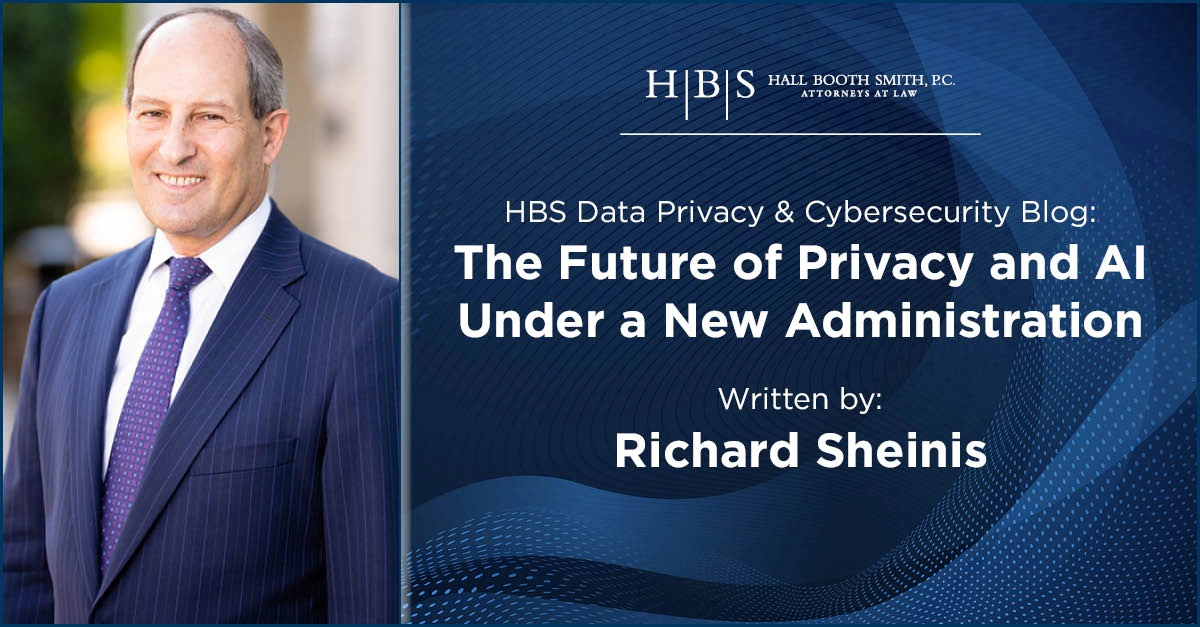
The Future of Privacy and AI Under a New Administration
In just over one month, the Republican Party will control the Senate and House of Representatives, not to mention the Oval Office. How will this affect the future of Privacy and AI Legislation?
The U.S. is way behind the rest of the world when it comes to comprehensive privacy legislation. Numerous pieces of federal privacy legislation have been proposed over the last several years, but none of them have had much traction in the legislative process. The two main sticking points have been whether there should be a private right of action for violations and whether federal legislation will supersede state privacy laws. The lack of federal legislation has left us with a patchwork of ever-increasing state data privacy laws.
In a world of digital commerce, federal privacy legislation that does not supersede state privacy laws simply does not make sense. The position that a federal privacy law would set a floor, but state laws can adopt stricter privacy requirements, is similarly without benefit. Companies would still be left with a variety of privacy laws with which they must comply. States would seek to maintain their piece of the privacy pie by passing laws with requirements stricter than any federal requirements.
In the new administration, I do not think federal data privacy legislation will be enough of a priority so that it will get much attention in the initial stages of the administration. My prediction is that we will have federal data privacy legislation before the Trump presidency is over, but that it will not happen until the latter part of Trump’s term. Tack on to that another one to two years before any legislation would become effective, and we should not expect to have enforceable federal privacy legislation for another three to five years.
As for artificial intelligence, so far we have been headed down the same path as privacy legislation. We have states passing legislation effecting the development and use of artificial intelligence, while the federal government remains largely silent. States that have passed AI laws are mainly focused on preventing the use of AI that produces biased or discriminatory outcomes.
In order to prevent AI from producing discriminatory outcomes, recent state AI legislation has required AI developers to disclose the databases and algorithms developed to produce certain results. The problem with such legislation is that it requires AI developers to reveal their “secret sauce,” which is an inhibition to the development of AI.
The influence of presidential advisors, such as Elon Musk, will also move proposed legislation away from anything that would inhibit AI development. My prediction is that we will not have federal AI legislation in the next four years, which may not be a bad thing. We already have enough laws on the books to prohibit discrimination in virtually all aspects of business; do we really need another one?
Disclaimer
This material is provided for informational purposes only. It is not intended to constitute legal advice nor does it create a client-lawyer relationship between Hall Booth Smith, P.C. and any recipient. Recipients should consult with counsel before taking any actions based on the information contained within this material. This material may be considered attorney advertising in some jurisdictions. Prior results do not guarantee a similar outcome.
Blog Overview
About the Author
Richard Sheinis
Partner | Charlotte Office
T: 980.859.0381
E: rsheinis@hallboothsmith.com
Richard Sheinis assists businesses in the areas of data privacy and cyber security, employment, and technology. He works with a wide variety of companies from small technology businesses to publicly traded companies with a global footprint.




Leave a comment
You must be logged in to post a comment.